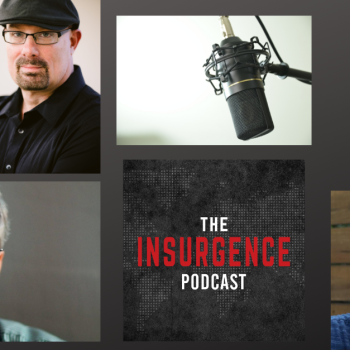1. "C" - Jesus Christ: The deity of Jesus Christ (including His virgin birth), and without ceasing to be God, He became man in order that He might reveal God and redeem sinful man.
2. "H" - Hope: The vicarious, substitutionary atonement of Christ's death on the cross is the only hope of redemption for all mankind: that we are saved by faith alone in Jesus Christ alone.
3. "R" - Resurrection: The literal, bodily (in the identical, though glorified, physical body in which He was crucified) resurrection of Jesus Christ from the dead.
4. "I" - Inerrancy: The divine inspiration, inerrancy (in the original autographs), and infallibility of Scripture.
5. "S" - Second Coming: The literal (bodily and personal) future return of Christ in the Second Advent.
6. "T" - Trinity: The Christian doctrine of the Trinity of the Godhead -- God is one and yet exists eternally in three persons having the same nature, attributes, and perfections, and equal in power and glory.
If you believe in and hold to these six fundamentals of the Christian faith, then you are a Fundamentalist in the best sense of that term. This, then, for many people is what it means to be a Fundamentalist.
Fundamentalism in History
However, as I said above, terms have a way of changing meanings. Since 1909, the term "Fundamentalist" has taken on some drastic and negative connotations. In my class, mentioned above, the woman who considered herself a Fundamentalist went on to say that she believed in the six Fundamentals of the faith.
In fact, she asked this question, if someone is not a Fundamentalist, that is, if the person rejects, say, three of the six basic fundamentals -- the deity of Jesus Christ, Christ's substitutionary death, and the Trinity -- is that person even a Christian?
The person who had made the negative comments about Fundamentalists didn't have a clue as to the concept of the historical "Fundamentals of the faith." This person thought that a Fundamentalist was simply a deeply legalistic person who
was a separatist and, perhaps, "a KJV-Only Bible thumper" as he put it.
So, herein lies the problem: One person was seeing the term through her "theological glasses" while the other person was seeing the term through his "sociological glasses." And, as long as these two people never understood the other person's definitional context, they would never be able to agree on anything having to do with the term Fundamentalist. After some discussion, the person who was so negative toward the term Fundamentalist said that he too believed in the six fundamentals, "So I must be a Fundamentalist!" he said.
In the humorous spirit of Jeff Foxworthy, I once wrote an article titled, "You might be a Fundamentalist if . . ." The essence of the article was this:
You might be a Fundamentalist if . . .
You believe that Jesus Christ is God.
You believe that Jesus Christ died a vicarious, substitutionary death on the cross.
You believe that Jesus Christ literally and bodily rose from the dead.
You believe that the Bible is divinely inspired and is inerrant and infallible in the original autographs.
You believe in the Second Coming of Christ as a literal, future return of Christ.
You believe in the Christian doctrine of the Trinity.
So, are you a Fundamentalist? Well, according to the above list of beliefs, I certainly am.
Fundamentalism Sociologically
The problem with the term "Fundamentalist" today is that most people identify it from a sociological framework, and not a theological one. Fundamentalists are not seen so much for what they believe, but for what they do (or don't do). Television news has had no shortage of video showing extreme, fanatical Christians carrying signs that depict hatred rather than love. Jerry Falwell said it (tongue-in-cheek) quite well when he said: "A Fundamentalist is just an Evangelical who is angry about something."
The term "Fundamentalist" has been easily attached to the 9-11 hijackers who killed more than 3,000 people on September 11th, all in the name of their god, Allah.
In my hometown there was a Christian man who would go downtown and scream at people telling them that they were going to hell unless they repented. He even outfitted his van with outside loud speakers, and he would drive down main street screaming hell-fire and brimstone at people.
These kinds fanatical actions are seen today as indicative of the term "Fundamentalist." So, the term as it is often used today has nothing to do with a belief system, but it has to do with outward actions toward other people (sociological), and always in a negative way.
Also, Fundamentalists have typically been known as separatists. They see the "preaching of the gospel" as so important that some of them have concluded that there is no need to feed and clothe the poor until they first get saved. To feed and clothe the unsaved poor is only to help them live longer without Christ. In fact, some of them have accused more socially engaged Christians with preaching a "Social Gospel" that does not save but keeps people comfortably in their sins. This primary emphasis of "preaching first" has led some Fundamentalists to be absent socially.




